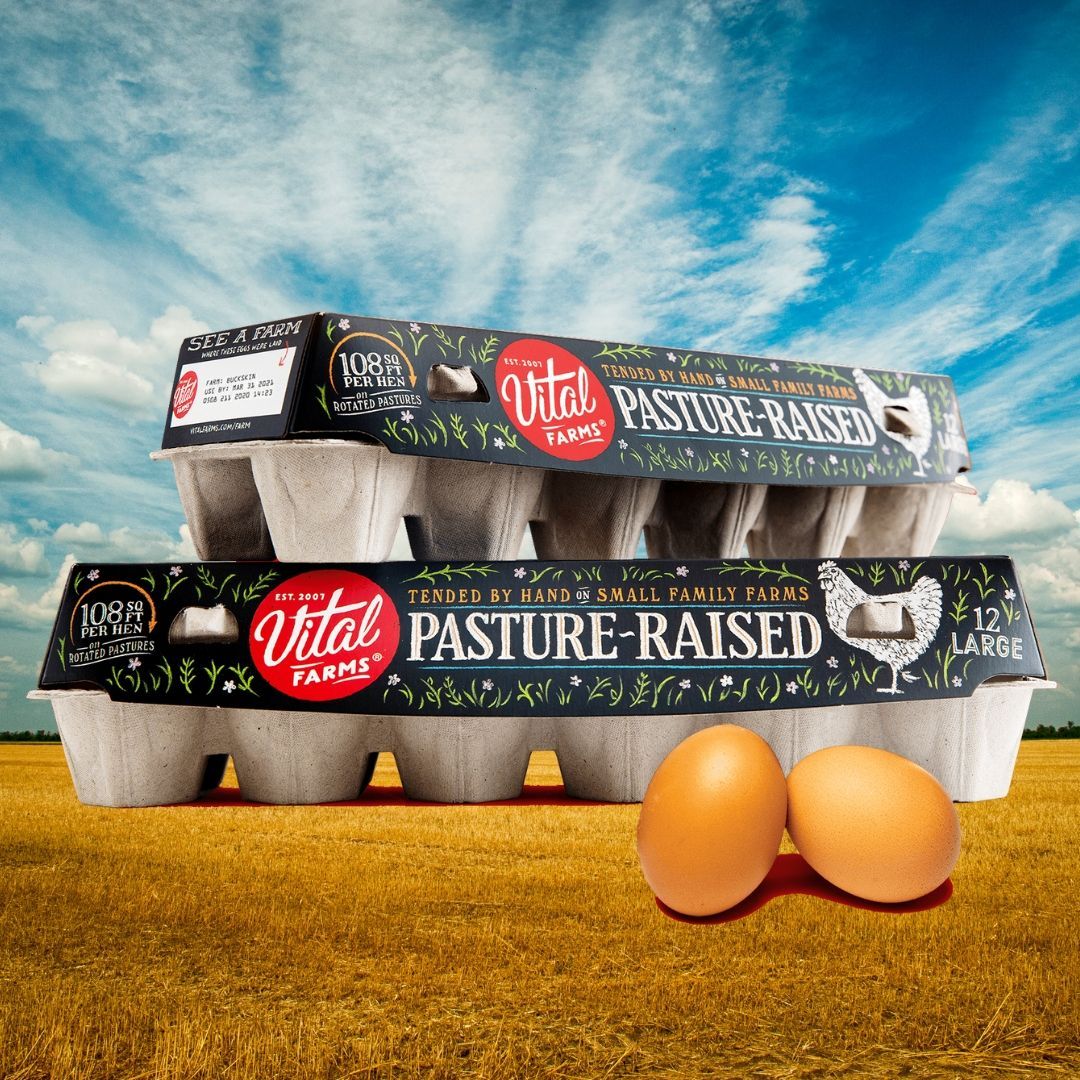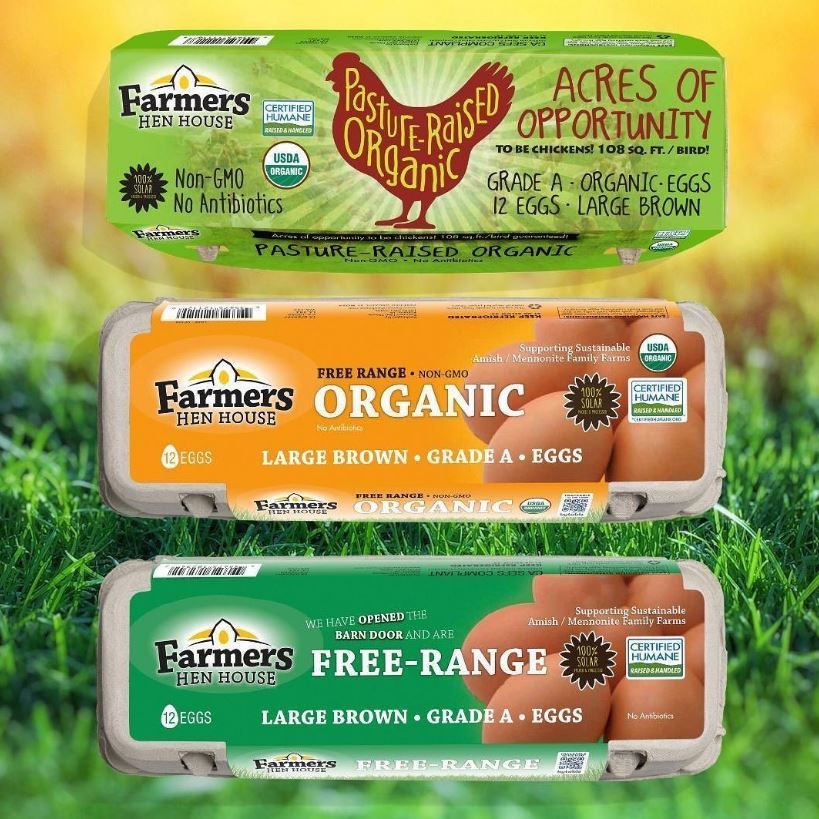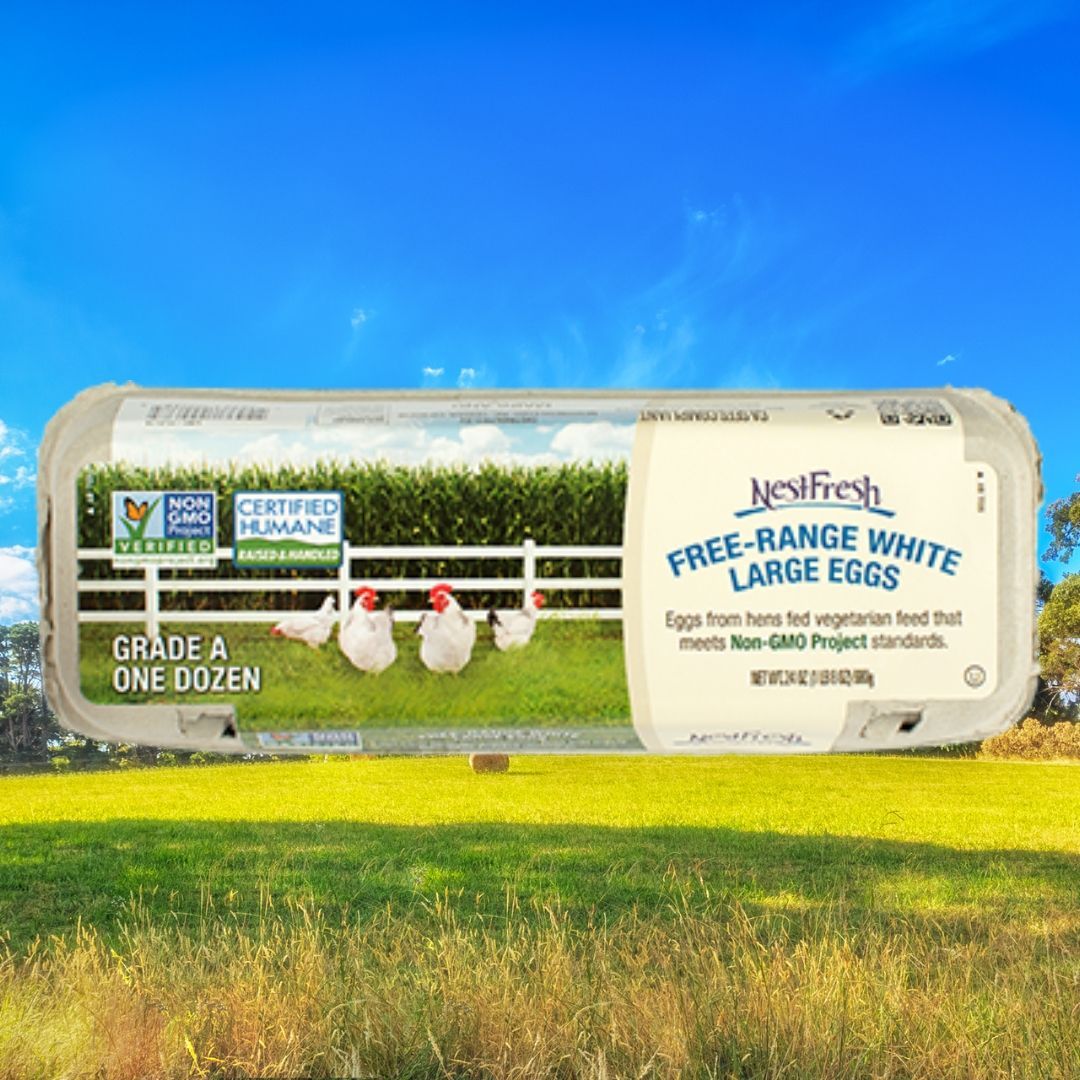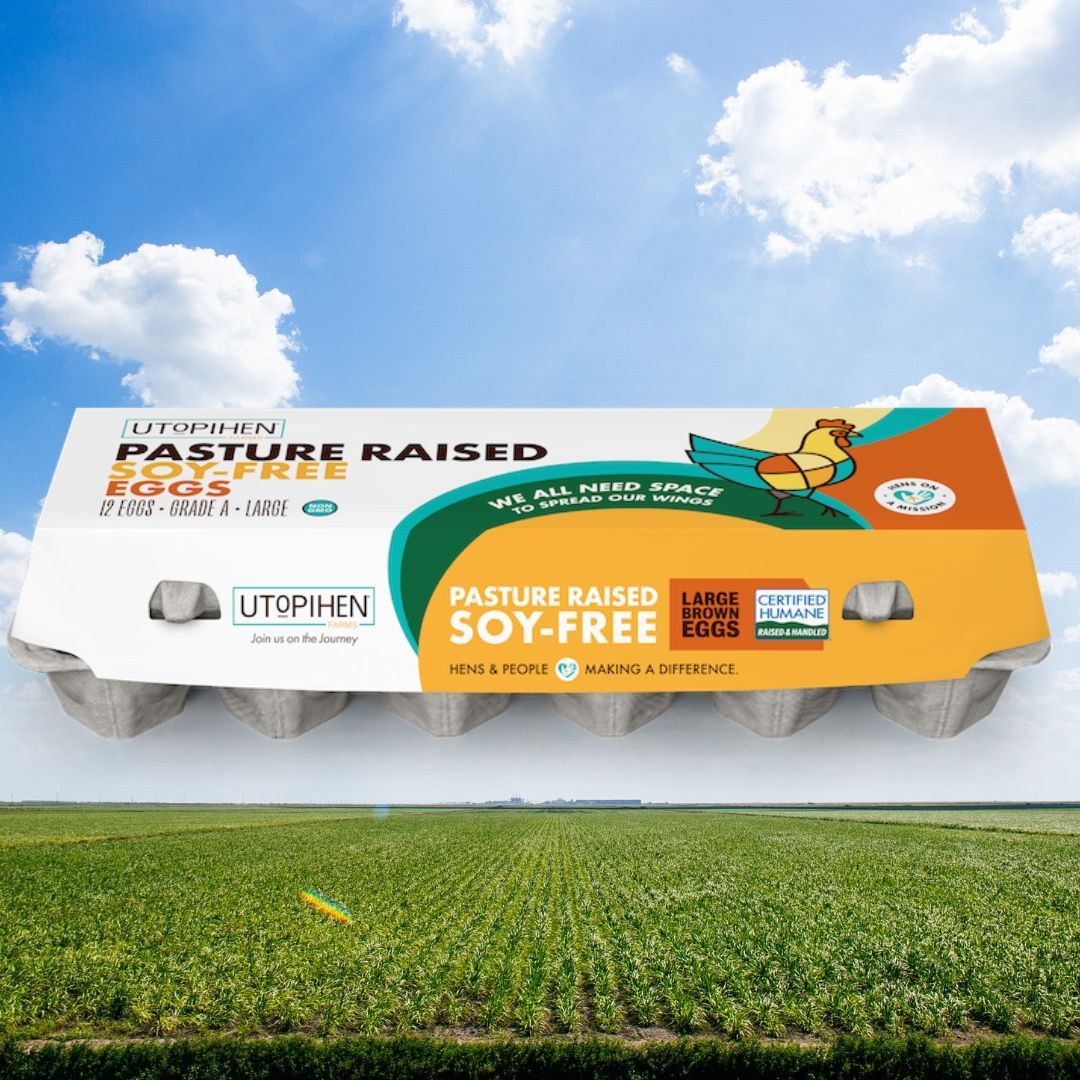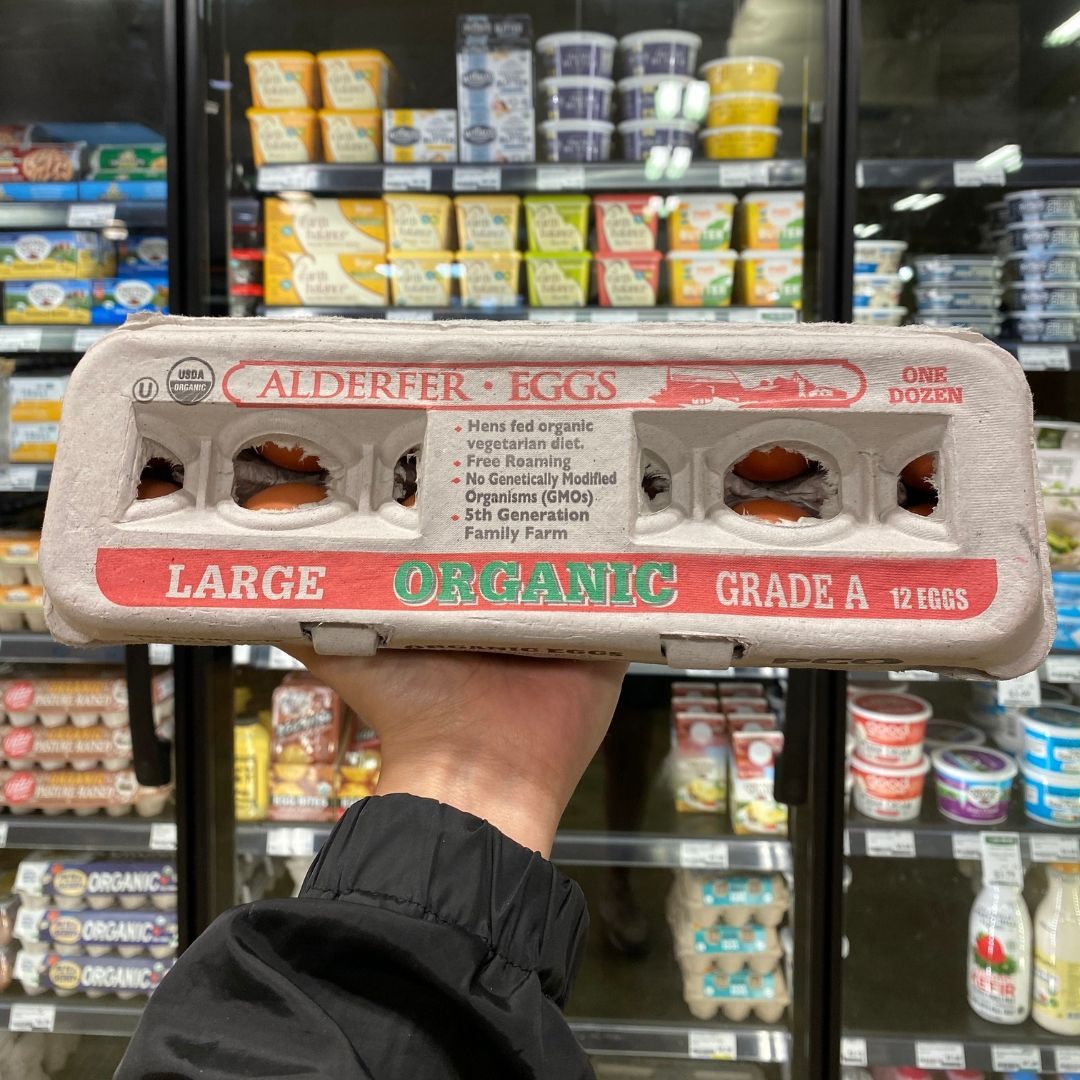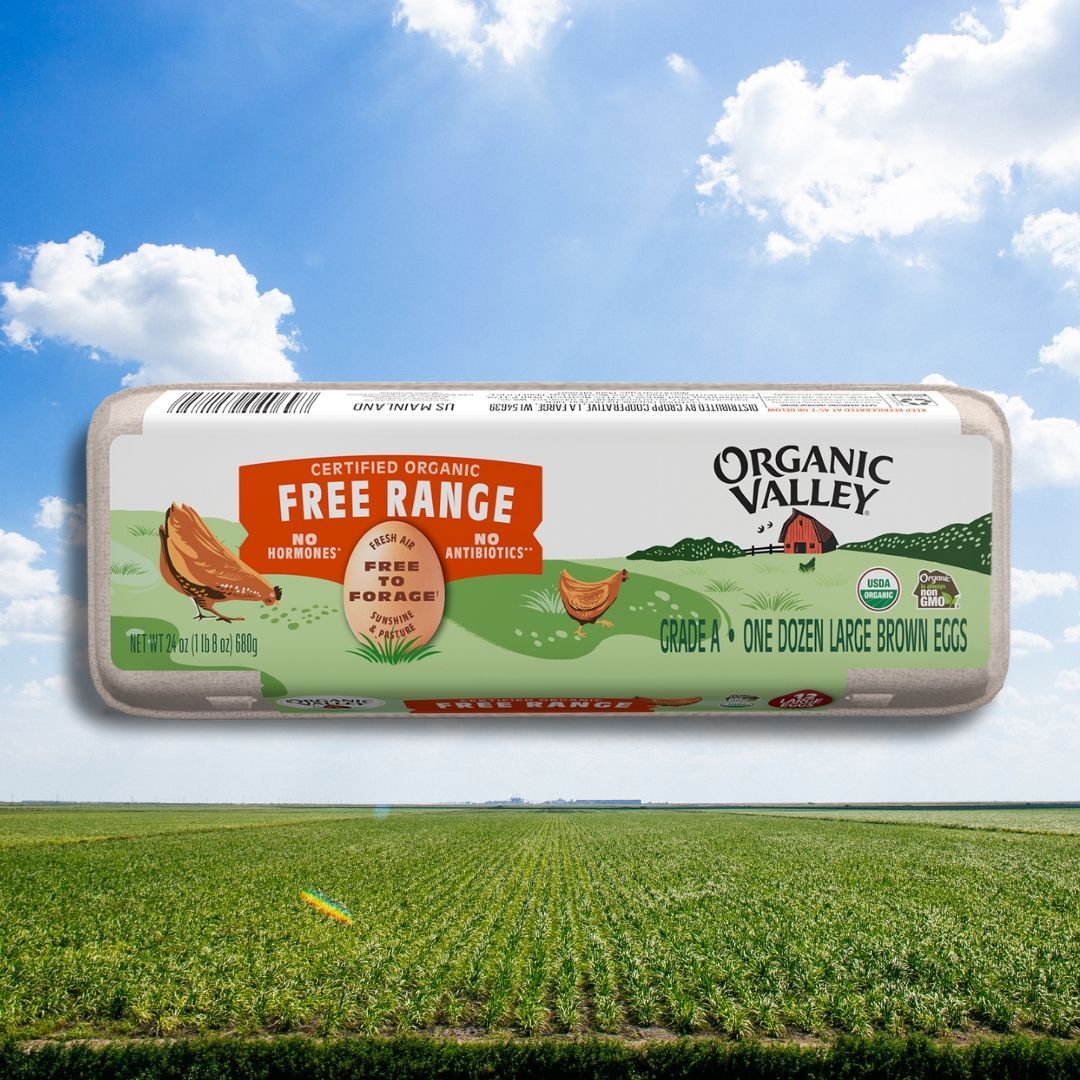What Do You Look For When Buying Eggs?

Down below are the brands we carry
Egg Terms to Know:
Fertile, non-fertile:
- Fertile eggs are from farms that keep both hens and roosters. Fertile eggs typically have tiny brown speck in the egg white.
- Fertile eggs contain reproductive hormones and also may contain higher levels of some nutrients.
- Non fertile eggs or sterile eggs are from farms where only hens are kept.
Cage Free:
- Cage free hens are allowed to roam inside barns or warehouses, but they don't necessarily have access to the outdoors.
- Uncaged chickens can engage in some natural behaviors that caged birds cannot, like walking, nesting, and perching.
- There are many certifications verified by USDA for humanely raised chickens, some set standards for hen's space and access to the outdoors, and some also prohibit force molting (via starvation) and or break cutting
Free-Range or Free-Roaming:
- Apply to hens that are cage free too.
- There are no regulations for exactly how these hens are raised differently from "cage free" hens, but the understanding is that true free range eggs come the hens that forge on a pasture for green plants and insects.
Pasteurize or Pasture-Raised:
- Are eggs that come from hens raised outdoors on the grass at least 1.8 square feet of indoor floor space each.
- Continuous access to a vegetation covered outdoor area in which to roam and forage.
- At least 4 square feet of outdoor space each
- Access to nesting boxes and Perching
Color and Variety:
- Eggs shells can be white, brown, pale green or other colors. The color of egg shells is an indicator of chicken variety and not indicator of nutrition.
- Some co-ops offer ducks and quail eggs in addition to chicken eggs. Duck eggs are considerably larger than chickens eggs, and quail are significantly smaller and typically speckled.
Organic:
- Organic eggs are from farms where chickens are fed organically grown feed and are not given any given any antibiotics or hormones.
- Organic chicken farms are free range, offering the chickens access to pastures and cage free living.
- Some eggs are labeled as rich in omega-3. Pasture chicken eggs are naturally higher in omega-3 because they have access to bugs in their diet, but farmers also can boost omega-3 content by supplementing chicken feed with flax seed.
Nutrition:
- Egg whites contains most of the protein and while the yellow yolk contains most of the fat as well beneficial compounds such as lecithin and biotin, which both aid in the digestion of the egg.
- The protein content of the egg is consider complete. Protein is made up of amino acids and the combination of amino acids in eggs is used as the standard by which the protein quality of other foods is measured.
